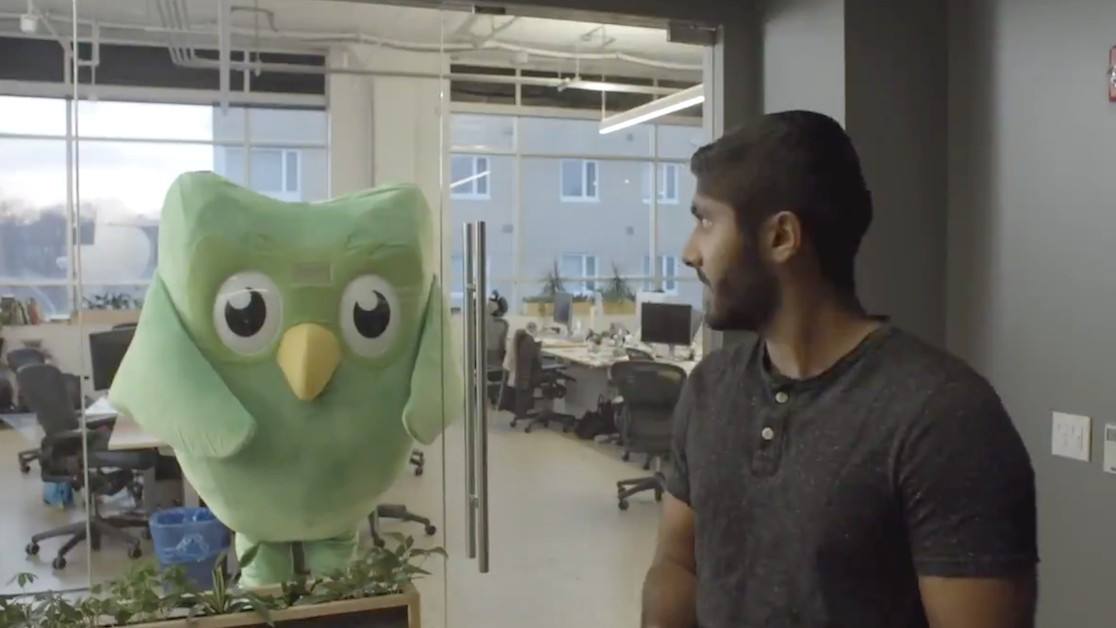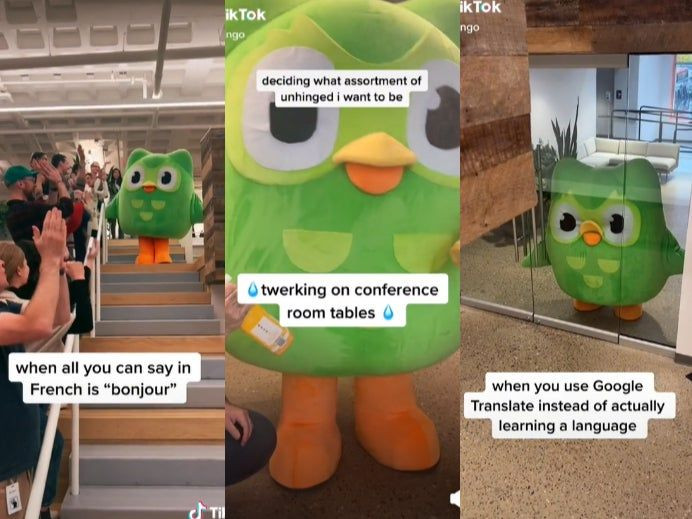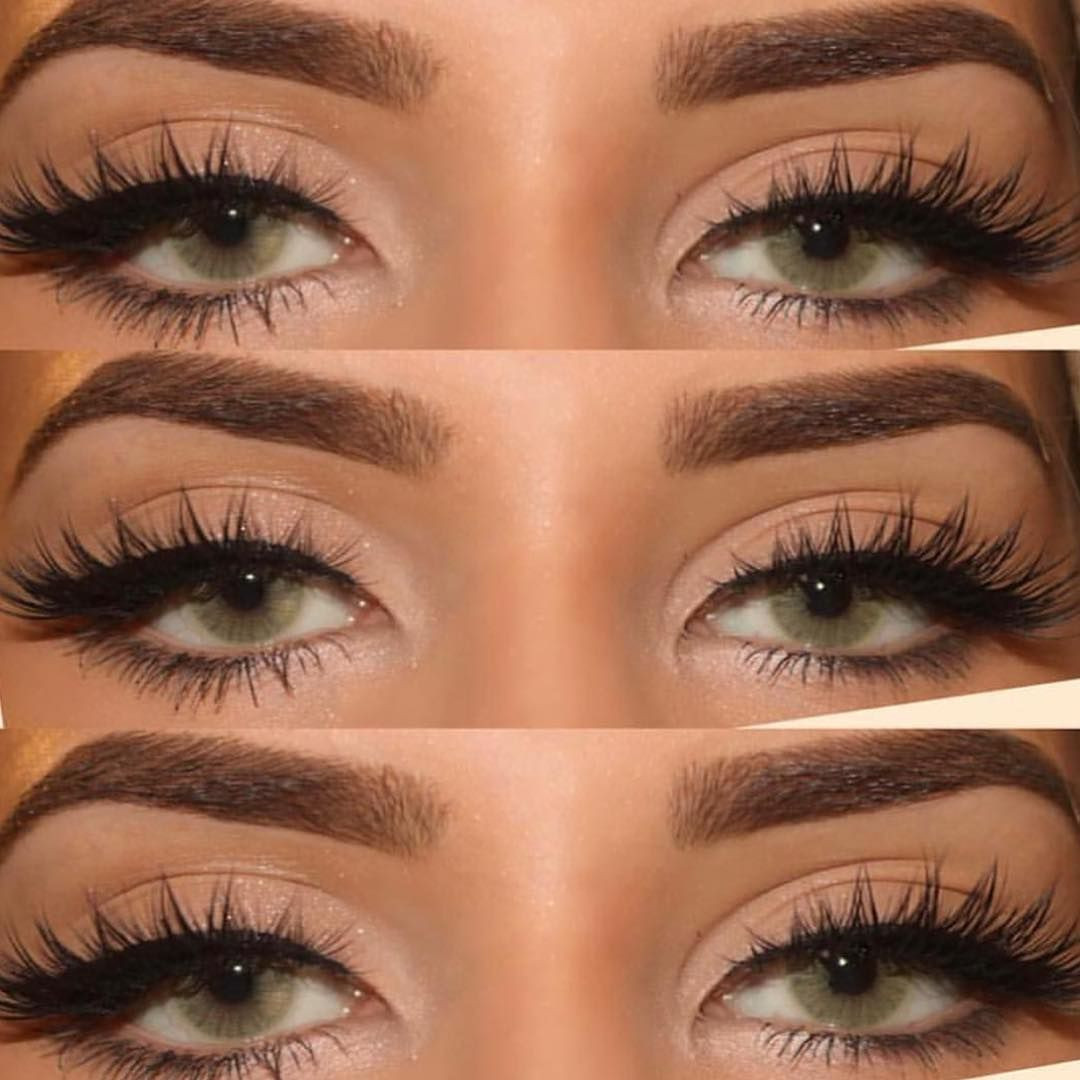Duolingo's Shocking Announcement: Duo the Owl is Dead
Language learning service Duolingo has announced the death of its world-famous owl mascot, known simply as Duo. The Pennsylvania-based company shared a post stating that Duo is dead and that authorities are investigating the circumstances. This tongue-in-cheek marketing move is in line with Duolingo’s recent strategy, which has seen its owl go viral several times – mostly due to the bird’s threatening reminders for users to continue with their digital language classes.
On Tuesday (11 February), Duolingo posted: “‘Tbh [to be honest] he probably died waiting for you to do your lesson, but what do we know? We’re aware he had many enemies, but we kindly ask you to refrain from sharing why you hate him in the comments. If you feel inclined to share, please also share your credit card number so we can automatically sign you up for Duolingo Max in his memory.” The company also referenced the viral meme comparing Duo’s name to British pop star Dua Lipa, concluding: “We appreciate you respecting Dua Lipa’s privacy at this time.” Duolingo has also updated their profile photo on X/Twitter to one of Duo’s with crosses over his eyes.
The Internet's Reaction: A Mix of Mourning and Merriment
Users are rejoicing over the “news”, with many paying tribute to Duo on social media. “Thank God! Now I don’t feel guilty for not learning Spanish,” said one person, another added: “Rip to this king.” “Does this mean no more 6 am notifications threatening me because I haven’t done a lesson before I’ve woken up?” a third person asked. The sentiment was echoed by many: “Thank god no more annoying notifications when I’m having a fun time!” The reaction showcases the strong connection users had with the quirky mascot and their often-frustrating but ultimately endearing reminders.
In a statement issued to The Tab, Duolingo said: “We can confirm the statements in our recent social posts are true. It is with great sorrow that we announce the passing of our beloved mascot, Duo the owl. For years, he tirelessly reminded millions to do their language lessons—sometimes with gentle nudges, sometimes with sheer, unhinged persistence. But even the most relentless of birds can only take so much. Our app icon reflects this tragic loss with ‘Dead Duo’”. They joked: “There is an ongoing investigation that we cannot comment on extensively at this time. We know no owl as dedicated as Duo just drops dead without a story. Keep an eye on our social channels as we uncover the shocking (and possibly absurd) truth behind his untimely demise.”
Duolingo's Marketing Genius: A Viral Sensation
Duolingo commonly employs bizarre and hilarious marketing techniques, which often go viral. This week, Duolingo was one of several companies to pile mockery on Drake after Kendrick Lamar’s much-hyped performance of his 2024 diss track “Not Like Us” at the Super Bowl. The announcement of Duo's death is a prime example of this approach, generating massive engagement across social media platforms. The strategy successfully leveraged the existing meme culture surrounding Duo, turning a seemingly somber event into a conversation starter.
The death of Duo, however, isn't just a simple marketing stunt; it's a reflection of the evolving landscape of online interaction and the growing influence of brands on social media. Duolingo's announcement wasn't just met with individual reactions; brands themselves joined in the conversation, creating a wave of cross-brand interactions, demonstrating a new level of engagement and meme-sharing between corporate entities. This highlights a larger trend in which brands are increasingly adopting more human-like online personas to enhance audience engagement, even to the extent of participating in ironic or humorous commentary.
The Dead Internet Theory: A Deeper Dive
The overwhelmingly corporate reaction to Duo's death brings to mind the Dead Internet Theory, which posits that much of online activity is driven by bots and AI rather than individual users. The vast majority of well-viewed posts about Duo's demise originated from brands, not individuals, suggesting that the internet may be becoming increasingly corporate-driven. Several social media accounts including Assassin’s Creed, World of Warcraft, Chipotle, and Chess.com all posted about the Duolingo owl dying. These alone garnered tens of millions of views across social platforms. This is significant, as it points toward the prevalence of corporate-led narratives in shaping online discourse.
One of the most popular posts on Twitter from an actual person about Duo’s death, however, focuses on Duolingo’s AI-driven layoffs, which shows a stark contrast between corporate-driven trends and individual user concerns. The reaction highlights the complexity of online engagement, where genuine user experience is often interwoven with corporate marketing strategies. This further complicates the discussion of the Dead Internet Theory, showing that while a significant portion of online discourse might be driven by brands, authentic user interaction still plays a role.
The Legacy of Duo and the Future of Online Engagement
The death of Duo, while seemingly a whimsical marketing campaign, has sparked a wider discussion about the changing dynamics of online engagement. The response emphasizes the evolving nature of digital marketing and brand building and how brands are adapting to the current social media landscape. The success of Duolingo’s campaign in generating widespread engagement demonstrates the potential of leveraging current memes and viral trends in creating a memorable and effective marketing strategy.
The overwhelming brand participation in the ‘mourning’ of Duo underscores the growing influence of corporate entities in shaping online conversations and the blurred lines between genuine user interaction and corporate marketing. The incident raises questions about the nature of online communities and the balance between organic interactions and corporate-led narratives. It is important to consider how this shift might affect the future of online engagement and whether it leads to a further decrease in authentic user-generated content.
In conclusion, while the death of Duo the owl might seem like just another quirky internet event, it reveals a great deal about the evolving relationship between brands and consumers in the digital age. While the brand undoubtedly achieved their marketing goals, the incident calls attention to the nuances of brand engagement, the evolving nature of social media trends, and the lingering questions surrounding the Dead Internet Theory.

















